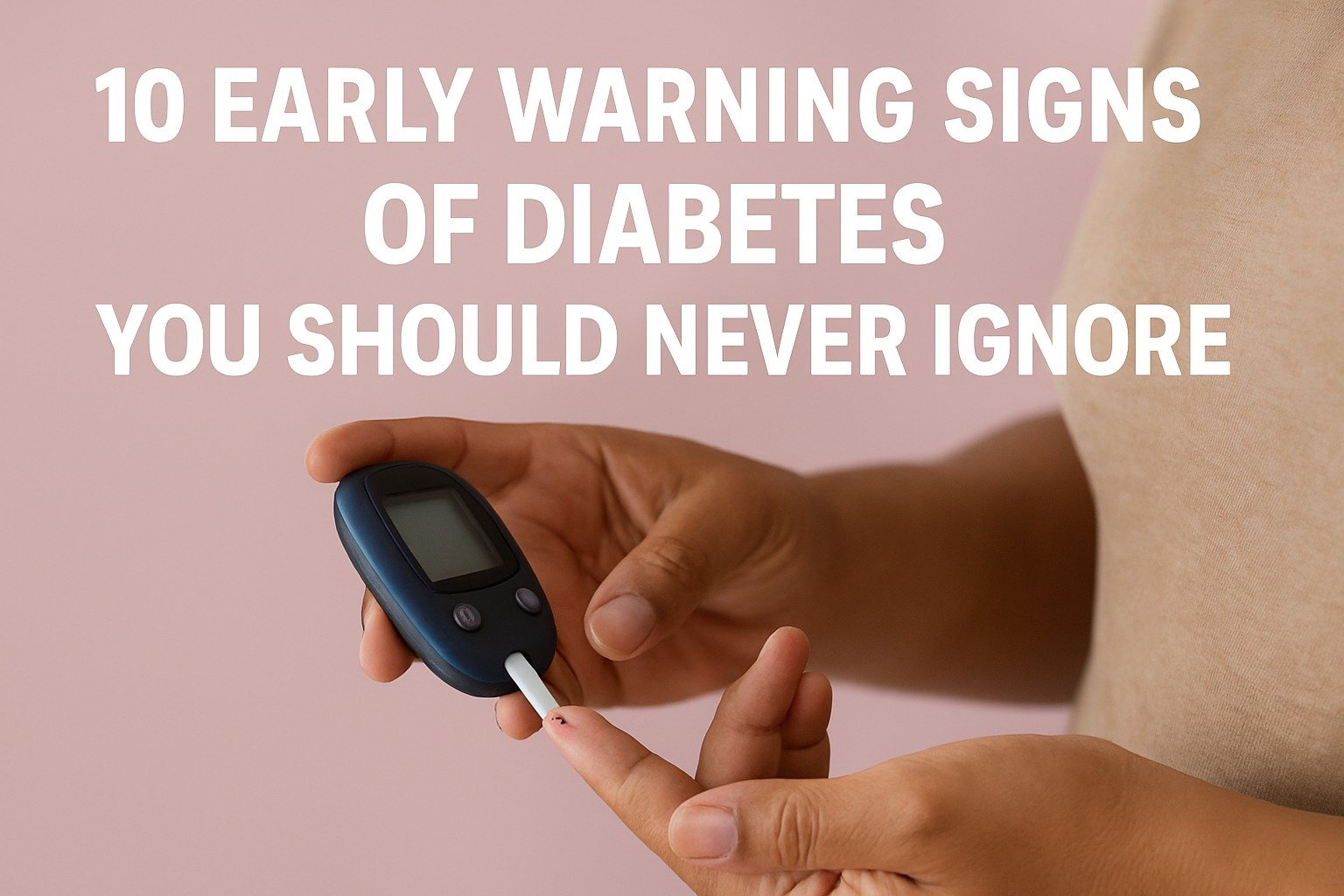

Diabetes is a chronic condition that affects millions worldwide. Often called a “silent disease,” it develops gradually, making early detection critical. Recognizing the warning signs allows timely intervention and prevents diabetes complications such as heart disease, kidney issues, and nerve damage. Here’s a detailed look at the 10 early warning signs of diabetes.
One of the first signs of diabetes is frequent urination. When blood sugar levels rise, the kidneys try to remove excess glucose by producing more urine.
Persistent thirst often accompanies frequent urination. As your body loses more water, it triggers constant thirst to replenish fluids.
Unintended weight loss may occur even without dieting or exercise. In diabetes, the body cannot properly use glucose for energy, so it starts breaking down fat and muscle.
Even after eating full meals, diabetes can cause persistent hunger. This happens because insulin is not effectively moving glucose into the cells.
Feeling tired despite adequate sleep is common in early diabetes. Cells don’t get enough glucose for energy, leading to chronic fatigue.
High blood sugar can affect the lens of the eye, causing temporary blurred vision. Over time, untreated diabetes can lead to permanent eye problems.
Diabetes affects circulation and immune response, delaying wound healing. Minor cuts or bruises may linger longer than usual.
Nerve damage, or peripheral neuropathy, occurs when high blood sugar affects nerves. This leads to tingling, burning, or numbness.
People with diabetes are more susceptible to infections because high glucose weakens the immune system.
Dark, velvety patches on the skin—commonly around the neck, armpits, or groin—indicate insulin resistance.
Recognizing these early warning signs allows timely action to prevent long-term complications. Proper care, lifestyle changes, and medical guidance can keep diabetes under control.
Take control of your health—visit Atlas Multispecialty Clinics for expert diabetes care and guidance.

Welcome to Atlas Multi Specialty Clinics, dedicated to prioritizing your health and well-being in the heart of Hyderabad’s Financial District, Telangana.
Atlas multi specialty clinics, The District, l202,
Financial District, Nanakramguda,
Hyderabad, Telangana 500032
atlasmultispecialityclinic@gmail.com
+91-7993366823
+91-9393000124
Copyright © Atlas Multi Specialty Clinics. All rights reserved.